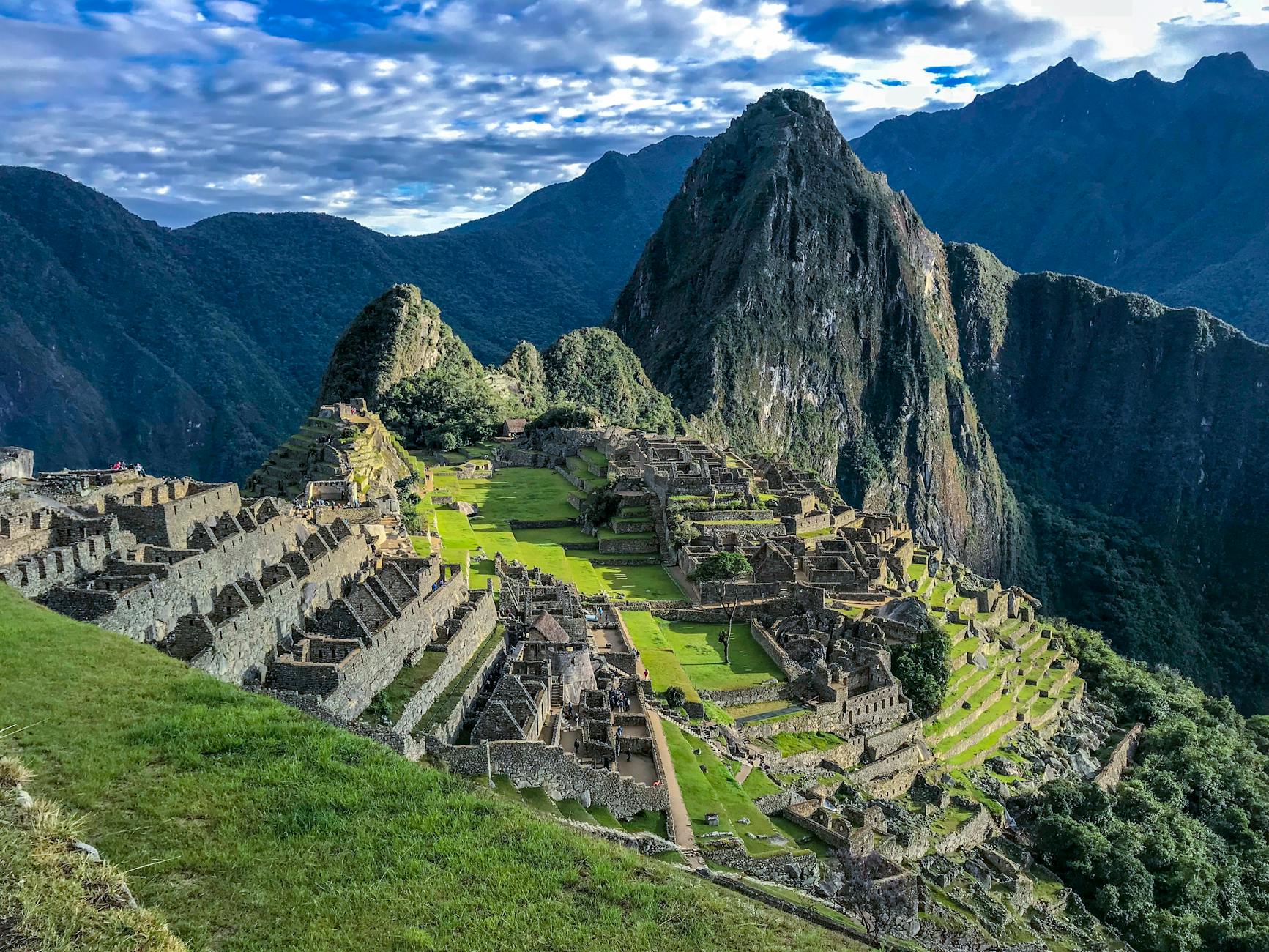How to Explore Africa Sustainably: Eco-Friendly Travel Adventures for Australians

Planning Your Eco-Friendly Trip
Great eco-friendly trips start with identifying destinations that balance adventure and sustainability. If you're interested in a Namibia safari or Kenya safari, look for tours that commit to wildlife conservation, respecting local biodiversity and ecosystems. These destinations offer opportunities to experience incredible natural habitats while contributing positively to their preservation.
Next, it's crucial to research eco-tour providers who align with your conservation values. Seek out companies with eco-conscious practices, such as supporting the local economy or ensuring minimal environmental footprint. For instance, packages promoting Cuba travel often include eco-friendly accommodations and attractions that emphasize sustainable tourism. Consider seeking verified tours through reputable environmental organizations to ensure your trip supports ecological balance and community empowerment.
Creating a green travel itinerary is another vital planning step. Incorporate sites known for eco-friendly initiatives, like wetlands at Jerrabomberra Nature Reserve, to keep a focus on sustainability even when exploring far from home. Prioritize stays in eco-accredited accommodations and include activities aimed at fostering a deeper connection with nature. Additionally, look for locally sourced meals to reduce carbon footprints and support the communities you visit.
When planning your eco-conscious adventure, remember the key is to make each choice reflect sustainability, from your choice of destinations down to the excursions. This ensures that your travels are enjoyable and leave a light environmental footprint.
Eco-Friendly Transportation Options
Travelling sustainably is all about choosing options that minimise environmental impact while offering enriching experiences. For flights, opt for airlines that prioritise fuel-efficient aircraft and commit to reducing carbon emissions. International routes from Canberra often include stopovers, so choosing airlines with lower stopover times can reduce overall emissions. For example, when researching botswana tours or tanzania tours, consider flights that partner with carbon offset programmes.
On the ground, there's a world of sustainable transport choices. When exploring dream destinations like a south africa safari, I suggest opting for electric vehicles, shuttles, or even shared transport services known for their eco-conscious efforts. For instance, in South Africa, many national parks and safari operators use solar-powered or hybrid vehicles.
Carbon offset initiatives can also make a significant impact. These programmes allow travellers to compensate for the carbon emissions generated from their flights or ground transport by investing in environmental projects. Whether it's supporting reforestation efforts or renewable energy initiatives, offsetting your carbon footprint contributes positively to the planet.
Travelling across continents with an eco-heart ultimately means taking innovative steps to protect the jewel of nature. While you take in the stunning landscapes of Africa, from the savannas of Tanzania to the dynamic ecosystems of South Africa, remember that your journey can reflect the principles of sustainability as splendidly as the tidal wetlands at Jerrabomberra Nature Reserve.
Immersing in Nature Responsibly
When planning a trip to Africa focused on embracing and preserving the environment, wildlife conservation tours are a fantastic option. Not only do african tours give you the chance to marvel at the endemic species, but they also support conservation initiatives vital to the survival of these ecosystems. It's like wandering through the ecological exhibits at the National Museum of Australia but on a much grander, more impactful scale.
Wildlife Conservation Tours
Incorporating namibia tours into your itinerary can significantly enhance your sustainable travel experience. These tours often partner with local wildlife foundations, contributing directly to preservation efforts. Always choose operators committed to protecting the natural habitat and minimizing their footprint. Ask about their conservation contributions and animal welfare policies to ensure you're supporting ethical practices.
Sustainable Safaris and Trekking
Opt for sustainable safaris, which prioritise eco-friendly game drives, camping, and walking tours. Look for safari operators that utilise solar energy and have a low carbon footprint. Trekking with local guides can deepen your understanding of the ecosystem and provide economic benefits to the local communities. It is reminiscent of exploring the iconic tidal wetlands at Jerrabomberra Nature Reserve.
Participating in Local Conservation Projects
Immerse yourself further by volunteering in local conservation projects. Whether it involves planting trees, assisting in animal care, or contributing to research efforts, these experiences offer meaningful ways to give back. They often require minimal investment but provide significant rewards both environmentally and personally. Always ensure that the project aligns with sustainable and ethical standards, reinforcing your commitment to responsible travel.
Engaging with Local Culture
Supporting Eco-Conscious Communities
Engaging with local culture is a vital part of sustainable travel, enabling us to experience destinations more authentically while supporting eco-conscious communities. As someone deeply committed to sustainability, I emphasise choosing machu picchu tours that focus on preserving local traditions and ecosystems. This cultural immersion enriches travel experiences and positively impacts the communities we visit. Participating in community-led initiatives, such as visiting local markets or attending traditional workshops, can provide both insight and support to those practicing sustainable methods.
Ethical Souvenir Shopping Tips
When it comes to souvenir shopping, keeping sustainability in mind is crucial. Look for locally made artisanal products rather than mass-produced items. Consider souvenirs made from recycled or sustainable materials that capture the essence of your travel while maintaining ethical standards. Supporting local artists and craftsmen ensures that your spending contributes directly to the wellbeing of local economies.
Respectful Cultural Interactions
Respectful cultural interactions involve understanding and appreciating local customs and traditions. Before embarking on central america tours, for example, it's essential to learn about the cultural practices of the region, guiding travel decisions to align with local norms. Being mindful of language, dress codes, and rituals ensures respectful engagement with local communities. It's inspiring to travel in a manner that aligns with values similar to those championed in the ecological exhibits at the National Museum of Australia, fostering environments of understanding and mutual respect.
Tips for a Sustainable Travel Experience
Avoid Overpacking Harmful Items
It's easy to get carried away when packing, but remember that every item counts towards your environmental footprint. Try to reduce reliance on single-use plastics by packing reusable items like water bottles and shopping bags. Choosing sustainable travel gear made from recycled or organic materials is an excellent way to contribute positively. Next time you wander through the ecological exhibits at the National Museum of Australia, reflect on how every small decision makes a difference. Australia has so much to offer, from the National Botanic Gardens to the tidal wetlands at Jerrabomberra Nature Reserve, and we must protect these wonders by being mindful of what we pack.
Respect Local Eco-Regulations
Every country has unique ecological landscapes and regulations designed to preserve them. Educate yourself about the local eco-laws before you set foot in a new destination. Disregarding these guidelines can harm ecosystems and may result in fines. Just as you would follow guidelines when exploring the tidal wetlands at Jerrabomberra Nature Reserve, respect the rules that protect the landscapes you visit abroad. By understanding regulations, you not only minimise harm but also support conservation efforts worldwide.
Understand Responsible Volunteering
Volunteering during your travels can be profoundly rewarding, provided it is done responsibly. Choose volunteer projects that align with sustainable practices and genuine community needs. For instance, involvement in wildlife conservation tours or projects that empower local eco-conscious communities can significantly benefit both the volunteers and the ecosystems they aim to protect. When in doubt, imagine the ethos behind ethical exhibits in the National Museum of Australia, which focus on real impact and understanding. A thoughtful approach helps ensure that your contributions are beneficial and sustainable.


